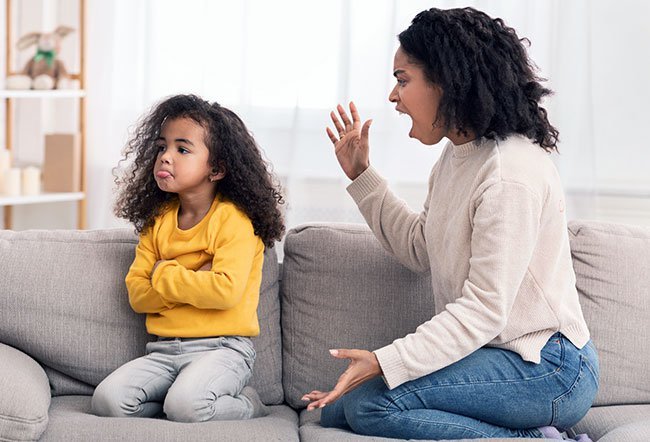Did you know that one in five children will experience a mental health disorder at some point during their childhood? This statistic is shocking. It is important to understand the different types of disorders that children can have. In this blog post, we will discuss ten facts about child mental health that everyone should know. Also, we hope that this information will help to create awareness and understanding about this important issue.
Contents
- 1 What Is Child Mental Health?
- 1.1 Importance Of Child Mental Health
- 1.2 10 Facts About Child Mental Health
- 1.3 Signs Of Mental Health Problems In A Child
- 1.4 Causes Of Mental Health Problems In Children
- 1.5 What Triggers Mental Health Problems?
- 1.6 Treatment For Mental Health Problems In Children
- 1.7 Helping Your Child To Deal with Problems
- 1.8 How To Prevent Mental Health Problems In Children?
- 2 Conclusion
- 3 A Word From Therapy Mantra
What Is Child Mental Health?
Mental health is the emotional and psychological well-being of a person. It is not just about being happy all the time. It also includes having a good sense of self-esteem, coping skills, and social support.
Child mental health is similar to adult mental health but also has its own unique characteristics. Also, it refers to the emotional, psychological, and behavioral well-being of children and adolescents. Kids can experience problems with their mental health too. This includes problems such as depression, anxiety, bipolar disorder, ADHD (attention deficit hyperactivity disorder), OCD (obsessive-compulsive disorder), and eating disorders.
It’s important to know that child mental health is different from typical developmental stages or problems like temper tantrums or acting out. Mental health includes a child’s emotional, social, and behavioral well-being. Mental health problems in kids can cause a lot of problems. These problems can make it hard for them to learn, socialize, and do well at home or school.
Importance Of Child Mental Health

Mental health is just as important as physical health, and it should be treated that way. According to the World Health Organization (WHO), “mental disorders are among the leading causes of ill-health and disability worldwide.”
When mental health problems are not treated, they can get worse over time. This can lead to things like drug addiction, teenage pregnancy, suicide, and criminal behavior.
On the other hand, when child mental health is addressed early on, it can prevent these things from happening. Treatment for mental health problems in kids usually includes therapy, medication, or a combination of both.
Finally, the good news is that most mental health problems in kids can be treated successfully if they’re caught early enough.
10 Facts About Child Mental Health
Here are ten important facts about child mental health that everyone should know:
- Child mental health is the emotional, psychological, and behavioral well-being of children and adolescents.
- Just like adults, kids can experience problems with their mental health such as depression, anxiety, bipolar disorder, ADHD (attention deficit hyperactivity disorder), OCD (obsessive-compulsive disorder), and eating disorders.
- Mental health problems in kids can cause significant distress and interfere with a child’s ability to learn, socialize, and succeed at home and school.
- When kids do not get treated for mental health problems, they could become addicted to drugs or pregnant at a young age. They may also think about suicide and crime.
- On the other hand, when you address child mental health in the early stages of life, it can prevent these things from happening.
- Treatment for mental health problems in kids usually includes therapy, medication, or a combination of both.
- The good news is that most mental health problems in kids can be treated successfully if they’re caught early enough.
- Childhood is a critical time for emotional development.
- Mental health should be treated as seriously as physical health.
- Early diagnosis and treatment of child mental health problems lead to better outcomes.
Signs Of Mental Health Problems In A Child

Changes in mood:
- Depressed mood
- Excessive crying
- Irritability or angry outbursts
Changes in behavior:
- Withdrawing from friends and activities
- Unusual clinginess
- Hyperactivity or excessive fidgeting
- Reckless behaviors or taking risks without thinking of the consequences
- Poor school performance
- Loss of interest in things that used to bring joy
Appearance:
- Having a hard time eating or sleeping
- Excessive weight loss or gain
- Unusual hair loss or skin problems
- Signs of self-harm, such as cutting oneself
- Thoughts of suicide or homicide
Finally, if you are worried about your child’s mental health, it is important to talk to a qualified professional. You can talk to your pediatrician, therapist, or psychologist. There is also plenty of information and support available online.
Causes Of Mental Health Problems In Children
There is no one cause for mental health problems in children. However, some of the most common causes include:
- Trauma or stress: This can include things like abuse, neglect, violence, and natural disasters.
- Genetics: Mental health problems can sometimes be passed down from parents to their children.
- Brain chemistry: Problems with the brain’s chemistry can lead to mental health problems.
- Environmental factors: Things like poverty, racism, and pollution can contribute to mental health problems in kids.
What Triggers Mental Health Problems?

There are a number of things that can increase the risk that a child will develop mental health problems. Some of these include:
- Having a family history of mental health problems: If one or both parents have a mental health disorder, the child is more likely to develop one too.
- Having a chronic illness: Kids who are hospitalized frequently or have a serious illness are at risk for developing mental health problems.
- Living in poverty: Children who live in poverty are more likely to develop mental health problems than those who don’t.
- Experiencing abuse or neglect: This can include physical, emotional, or sexual abuse, as well as neglecting important needs like food, shelter, and clothing.
- Being bullied: Bullying can cause kids to feel isolated and alone, which can lead to depression and anxiety.
- Using drugs or alcohol: Teens who use drugs or alcohol are more likely to develop mental health problems.
- Being LGBTQ: Lesbian, gay, bisexual, transgender, and queer kids are at a higher risk for developing mental health problems than those who are not.
- Experiencing trauma or stress: This can include things like abuse, neglect, violence, and natural disasters.
Treatment For Mental Health Problems In Children
The good news is that most mental health problems in kids can be treated successfully if they’re caught early enough. Treatment for mental health problems in kids usually includes therapy, medication, or a combination of both.
- Therapy: Therapists help kids explore their thoughts and feelings, learn how to cope with difficult emotions, and set goals for the future.
- Medication: Kids who are struggling with severe mental health problems may need to take medication to help control their symptoms.
Finally, there is no one-size-fits-all approach to treatment for child mental health problems; the best treatment plan will be tailored to the individual child’s needs.
Therapy Options To Treat Child Mental Health Problems
There are a number of different therapies that can be used to treat child mental health problems. Some of the most common therapies include:
- Cognitive-behavioral therapy (CBT): CBT helps kids learn how to change their thoughts and behaviors, which can help them feel better emotionally.
- Interpersonal therapy (IPT): IPT helps kids build healthy relationships with others, which can boost their self-esteem and reduce feelings of loneliness or isolation.
- Family therapy: Family therapy involves all members of the family working together with a therapist to address the child’s mental health issues.
- Psychodynamic therapy: Psychodynamic therapy focuses on understanding the underlying causes of the child’s mental health problems.
- Art therapy: Art therapy uses creative activities, like painting and drawing, to help kids express their feelings and thoughts.
- Play therapy: Play therapy helps kids work through emotional problems by playing games and using other forms of play.
- Peer support groups: Peer support groups are meetings where kids can talk with each other about their mental health experiences.
Medication Options To Treat Child Mental Health Problems

There are a number of different medications that can be used to treat child mental health problems. Some of the most common medications include:
- Selective serotonin reuptake inhibitors (SSRIs): SSRIs are antidepressant medications that help increase levels of serotonin in the brain.
- Serotonin-norepinephrine reuptake inhibitors (SNRI): SNRI antidepressants work by increasing levels of both serotonin and norepinephrine in the brain.
- Antipsychotics: Antipsychotic medications are used to treat severe mental health problems like schizophrenia and bipolar disorder.
- Mood stabilizers: Mood stabilizers are medication that helps control mood swings in people with bipolar disorder.
- Stimulants: Stimulants are medications that treat attention-deficit/hyperactivity disorder (ADHD).
Finally, there is no one-size-fits-all approach to treatment for child mental health problems; the best treatment plan can customize to the individual child’s needs. If you think your child may be struggling with a mental health problem, it’s important to talk to your pediatrician or another healthcare professional. Also, they can help you figure out what steps you need to take to get your child the help they need.
Helping Your Child To Deal with Problems

If your child is struggling with a mental health problem, there are things you can do to help them.
Here are some tips:
- Talk to your child about their feelings and listen to what they have to say. It is very important to talk to your child and listen to what they have to say. This will help them feel supported and understood. Also, this will help them feel like they can open up to you about anything that’s going on in their life.
- Encourage your child to get involved in activities they enjoy. If you show your involvement in activities that they enjoy, it can help kids feel good about themselves and improve their mood.
- Make sure your child gets enough sleep. A lack of sleep can worsen mental health problems.
- Make sure your child eats a healthy diet. A healthy diet can help improve mental health.
- Be there for your child when they need you: When kids are feeling down, it’s important to be there for them and offer support.
- Encourage your child to participate in activities they enjoy. This can help improve their mood.
- Encourage your child to get enough sleep. A lack of sleep can worsen mental health problems.
- Make sure your child sees a doctor if they are struggling with a mental health problem. If you think your child might have a mental health problem, it is important to make them go see a doctor. The doctor will help them.
- Help your child develop healthy relationships with others. Healthy relationships can help improve mental health.
- Be patient. It may take time for your child to get better.
- Provide emotional support for your child. One of the most important things you can do is provide emotional support for your child. Let them know that you are there for them and that you love them no matter what.
How To Prevent Mental Health Problems In Children?
Many parents acquire tension about their children’s mental health. They don’t know how to prevent mental health problems in children. This is a guide on how to do that.
To start with, the first step is to be aware of the early warning signs of mental health problems in children. Also, some common signs that a child might be in danger are if they become withdrawn, have trouble doing well in school, can’t sleep well, or start to behave aggressively or self-harm.
Secondly, if you notice any of these warning signs, don’t wait to get help. If you see something that worries you, tell the doctor. Consequently, the doctor might be able to help your child stop having problems in the future.
It’s also important to create a supportive environment for your child. There are many things parents can do to help their children. Also, this includes providing a stable home life, being positive role models, and teaching them how to cope with stress.
Finally, you can help your child by showing your involvement in their mental health care. People who are sad will want to open up. Show them that you care and want to help. Consequently, that way they can get the treatment they need if they are unhappy.
Also, childhood is an important time for developing healthy mental habits. Also, if we take the time to learn about and prevent mental health problems in children, we can help ensure that they have a bright future ahead of them.
Moreover, mental health problems can have a serious impact on a child’s life. However, early intervention and treatment can make a big difference. Also, if you’re concerned about your child’s mental health, don’t hesitate to get help. Moreover, the sooner you address the problem, the better chance your child has for a successful future.
Moreover, you can also help prevent mental health problems by:
- Teaching them how to cope with stress
- Helping them develop healthy mental habits
- Being positive role models
- Providing a stable home life.
Conclusion
Children need a supportive environment in order to thrive. If you take interest in learning more about how your child’s mind works and what they might be going through, take the time to read this blog post. Also, you’ll learn all about cognitive neuroscience from Dr. Daniel Siegel so that you can better understand their behavior and provide them with the support they need for healthy development. Helping children develop strong mental health is an investment not only into our future but also into theirs!
Finally, the main takeaway from this blog is to be aware of how you are treating your children. If they are not receiving enough mental stimulation, it could lead to more serious issues in their lives later on down the line. Furthermore, we hope these tips will help you understand what parents can do for their kids. Also, they might be able to help you too!
A Word From Therapy Mantra
Your mental health — Your psychological, emotional, and social well-being — has an impact on every aspect of your life. Positive mental health essentially allows you to effectively deal with life’s everyday challenges.
At TherapyMantra, we have a team of therapists who provide affordable online therapy to assist you with issues such as depression, anxiety, stress, workplace Issues, addiction, relationship, OCD, LGBTQ, and PTSD. You can book a free therapy or download our free Android or iOS app.


